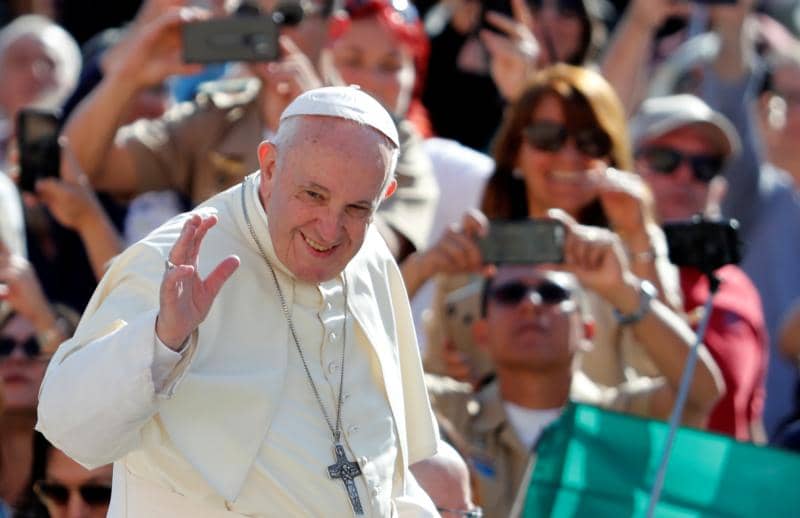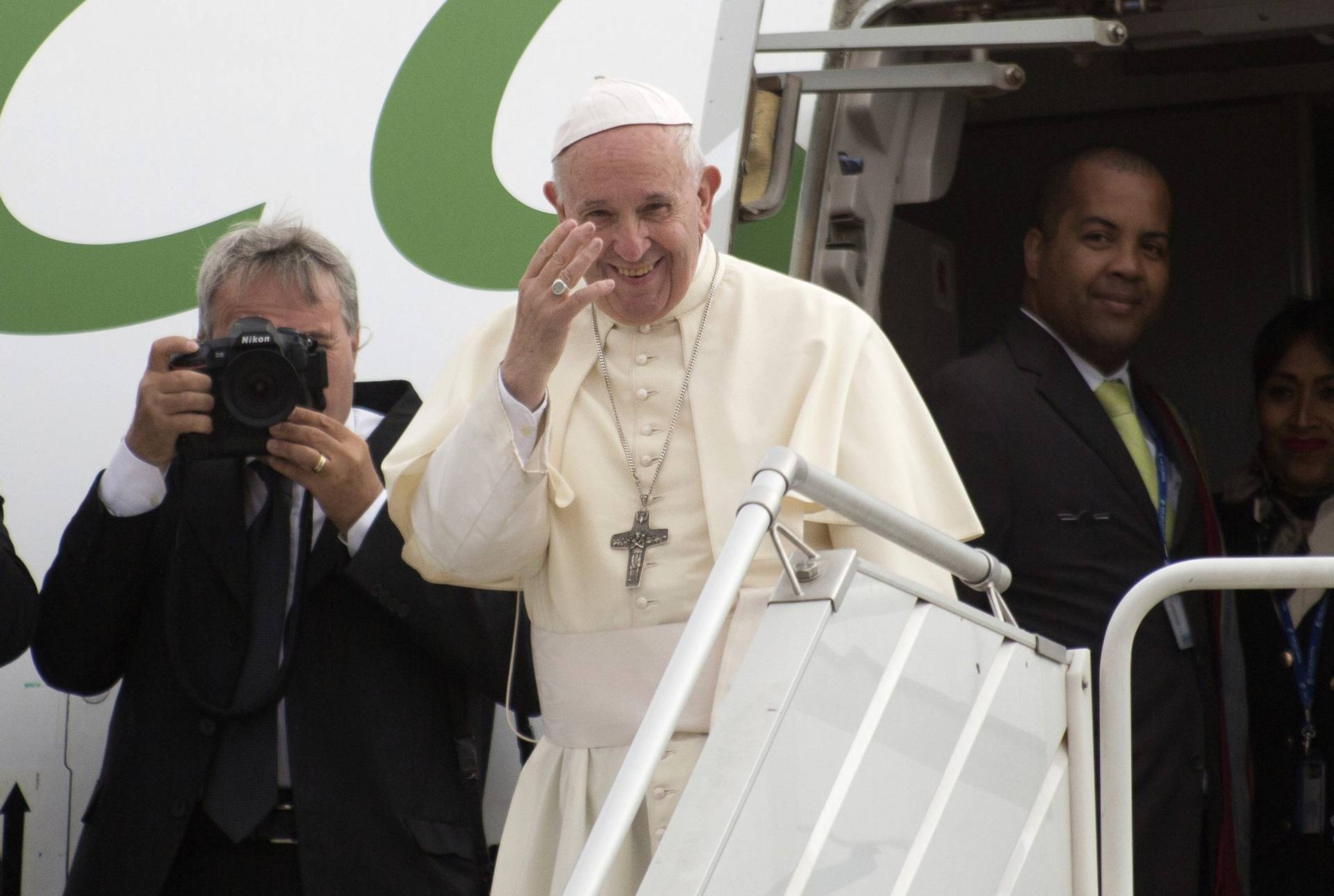ROME – During his Sept. 4-10 visit to sub-Saharan Africa, Pope Francis had the opportunity to see Akamasoa, a solidarity project that under the leadership of an Argentine missionary priest has lifted some 30,000 people from extreme poverty. Upon his return to Rome, he called the project “prophetic.”
Madagascar, Francis said during his general audience on Wednesday, is a country “rich in natural beauties and resources but marked by so much poverty.”
Francis said he hoped by moving forward with a “traditional spirit” of solidarity, the Malagasy people can overcome their differences and build a future of development combining a respect for the environment and social justice.
“As a prophetic sign in this direction, I visited the ‘City of Friendship’ – Akamasoa, founded by a missionary, Father Pedro Opeka. There, there’s an attempt to combine work, dignity, care for the poorest, [and] education for children. All animated by the Gospel,” he said.
RELATED: Africa trip planted new seeds of hope, pope says at audience
What Opeka has done since he began the project in 1989, defies reason for many: He turned the site of a giant garbage dump – where children scavenged for food next to pigs and dogs – into a model city of 5,000 brick homes, schools, health care centers, playgrounds, churches and a small sports stadium where he says Mass for 10,000 people every Sunday.
Some 700 people have permanent jobs as masons and carpenters, and a similar number work in a nearby granite quarry, using mallets to chop chunks of granite into cobblestones or pebbles.
Over the past 30 years, the Akamasoa quarry has produced the stones used to build homes, the roads that connect the 18 neighborhoods that make up the city, the schools that have educated some 15,000 people, and several health clinics.
Opeka has said that the low salaries he pays the quarry workers are an injustice: Less than $2 a day. It is still better than what scavengers earn in the dump, and it’s enough to enable parents to send their children to school.
He’s also been openly critical of the “assitencialist” welfare model, in which the state gives long-term assistance – often becoming permanent – to unemployed people. This model, he says, undermines the dignity people have in earning the bread that is put on their tables.
The city within a city is also sustainable. It dots a now pine-covered hillside, and the forest is constantly replanted as the wood is used to make the furniture for those who live in the City of Friendship.
According to Spanish missionary Bishop Gustavo Bombin, who’s been in Madagascar since 1987 when he was ordained a priest of the Order of the Most Holy Trinity, Akamasoa is the “showcase of Madagascar.”
Of the many things he lists as impressive, he underlined one in particular: “Of all the people who live and work in the city, only two are foreigners. Opeka and a sister from the Daughters of Charity, who hails from Germany.”
“We have many prejudices, scruples, that lead us to believe that we can’t trust in the local people, that they’re not capable,” he said as he was waiting at the Antananarivo airport to say farewell to Francis. “But the truth is, the only way for a country to go forward is with the local population.”
“Akamasoa proves that this is possible, that it can be done,” Bombin said. “Opeka has given these people their dignity back, lifting them up from poverty in a way that is unique, prophetic.”
The bishop said he believes that Francis wanted to highlight the work of this Argentine missionary to show that a better life is possible even for those who live amidst the garbage, and that the path is one of solidarity and trust.
“And faith, because, in principle, faith gives you that extra endurance kick, like when you have a car with a dual fuel option: One might run out, but you have that extra one that allows you to go on,” he said.
American Bishop Donald Joseph Leo Pelletier, the retired head of the Diocese of Morondava, has been in Madagascar for 61 years. He told Crux that if the country had ten more men – or women – like Opeka, things would change drastically.
“Replicating Akamasoa, though desirable, is not that easy, because you need a very special person to lead it,” he said. “It requires a gift from God, and Father Pedro has it.”
According to Pelletier, Opeka is an “extraordinary man, a saint. You can see in his eyes the love he has for the people of God he’s been called to serve, and what he’s been able to accomplish goes beyond everything you might have seen. It’s something that only God can inspire, and what a great thing he did!”
Follow Inés San Martín on Twitter: @inesanma
Crux is dedicated to smart, wired and independent reporting on the Vatican and worldwide Catholic Church. That kind of reporting doesn’t come cheap, and we need your support. You can help Crux by giving a small amount monthly, or with a onetime gift. Please remember, Crux is a for-profit organization, so contributions are not tax-deductible.















